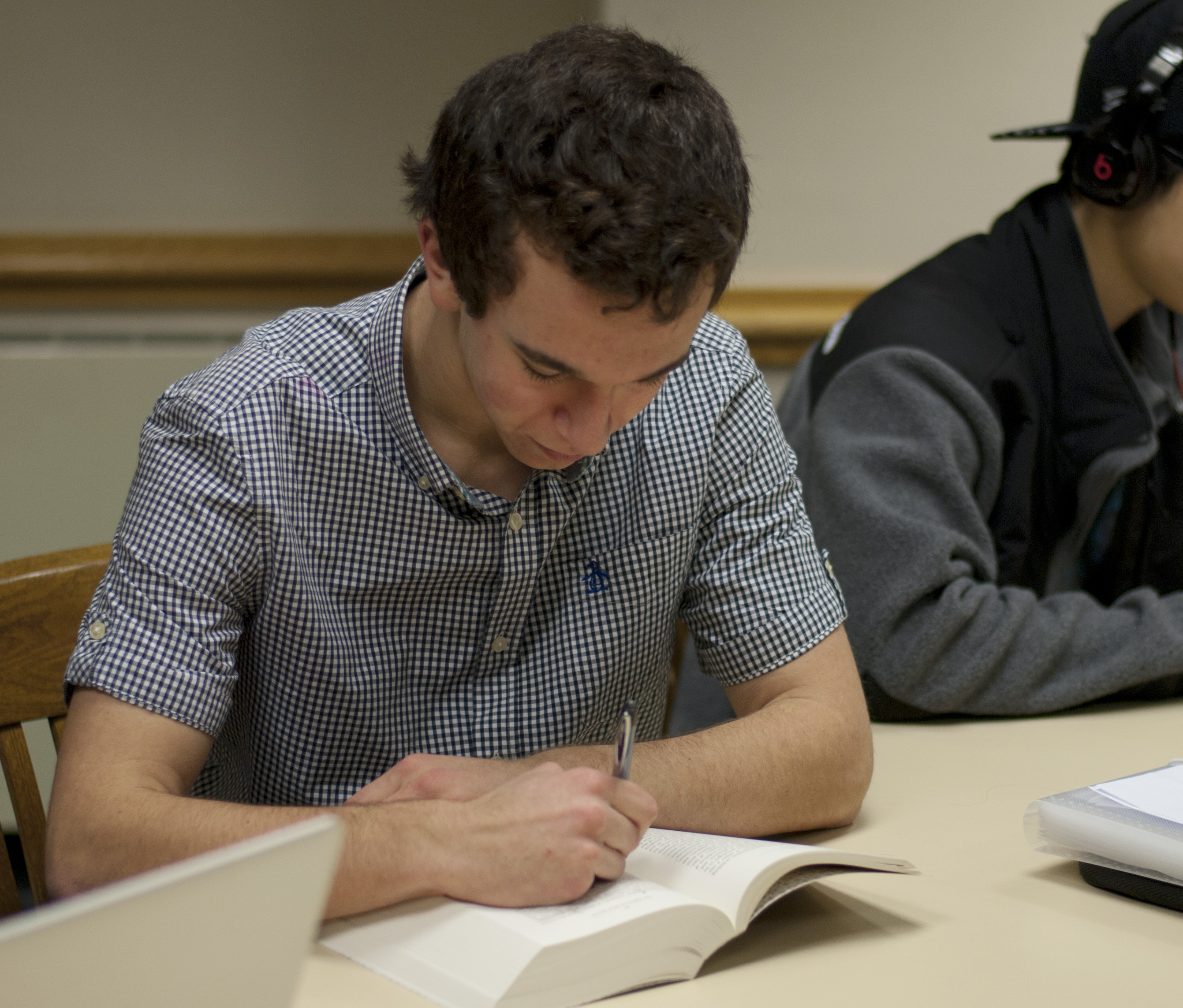
The Directed Studies Program at Yale is already notorious for its hefty reading requirement, but this semester a group of freshmen are adding to that reading list in an attempt to recognize perspectives not currently offered by the syllabus.
DS is a full-year academic program intended to give freshmen an overview of the Western tradition. Students enrolled in the program read a host of texts on literature, philosophy and historical and political thought. This spring, a group of DS students led by Dante De Blasio ’19 decided they wanted a new, more critical perspective on those texts. The reading group, which consists of roughly 10 students, meets once every Monday afternoon in the Whitney Humanities Center to discuss a selected text that is not on the DS syllabus. While this is not the first time a student reading group has formed outside of the official DS program, this is the first year DS will be able to provide financial support for the external group, according to DS Director of Undergraduate Studies Kathryn Slanski. In addition, although the group is student-led, it also includes German Professor Paul North, who helps to facilitate discussion and selection of texts.
“During the first semester of DS, I saw a real insufficiency in the balance of DS, where we read a lot of works that are classics of Western philosophy, but we didn’t really understand criticisms of them,” De Blasio said. “The reading group isn’t an attempt to destroy DS or anything, but is more of an attempt to have a balance and expand the perspectives that include more criticisms and traditions of Western philosophy.”
Slanski said the proposal for the group came after a “town meeting” in December in which students and professor discussed DS in the context of campuswide discussions last fall about diversity and inclusivity. DS has been criticized in the past for having a syllabus that focuses almost exclusively on white male authors. During the meeting, Slanski said, DS faculty made it clear that if students wanted to branch out into other areas of the tradition, the program would be very supportive.
She added that after the meeting, De Blasio said he wished to read more works by German philosopher Friedrich Nietzsche and other works of critical theory that he thought were lacking from the DS philosophy syllabus. Austin Strayhorn ’19, a member of the group, said the cohort just finished reading “On Truth and Lies in a Nonmoral Sense” and is now on “Twilight of the Idols,” both works by Friedrich Nietzsche.
But while the group has introduced more critical perspectives on core texts on the DS syllabus, so far it has not addressed concerns about including authors who are women or people of color. Isis Davis-Marks ’19, a member of the group and a staff columnist for the News, said she thinks it is important to include texts by authors of those demographics, both in the group and in the official DS syllabus, as the absence of their voice misconstrues historical presentation. Davis-Marks, who is no longer enrolled in DS, said she had “obvious problems” with the DS program’s structure and focus on the Western canon, and she is hopeful that the reading group will remedy some of those concerns.
De Blasio said the group is seeking to add more diverse authors to its discussions, citing the works of Jamaican philosopher Charles Mills as an example of a possible addition to the reading list.
Slanski acknowledged that there are many important writers and thinkers who are not included on the DS syllabus, whose work may or may not complement what is studied in the program.
“DS is an introduction to the Western tradition and makes no claims at comprehensiveness,” she said. “What we aim to do is introduce students to a selection of writers and thinkers who have been very influential on the Western tradition and help students develop their own ability to read and discuss those texts critically.”
Clio Byrne-Gudding ’19, another member of the group, said the group’s reading list has helped her gain new perspectives on the topics discussed in DS. Similarly, North highlighted the opportunity the group gives students to discuss modes of thought not represented in DS that may be relevant to their own situations or experiences.
For the first time this year, DS is receiving funding for “Living Texts” programming, which is dedicated to proposals from students and faculty for extracurricular programming that relates to the texts studied in the program. As a result, DS will be able to provide funding to the reading group. While a specific amount has not been allocated as the group has yet to formally submit a proposal, Slanski said the initial funds will be allocated towards refreshments and may later on possibly include larger activities like speaker events.
“The best thing about the group is that it springs from student interests and the crisis they’re living in,” North said. “They’re looking for texts that speak to them and those texts seem to be by theorists of political and social crises.”
The Directed Studies Program was founded in 1946 and is a part of The Humanities Program.







